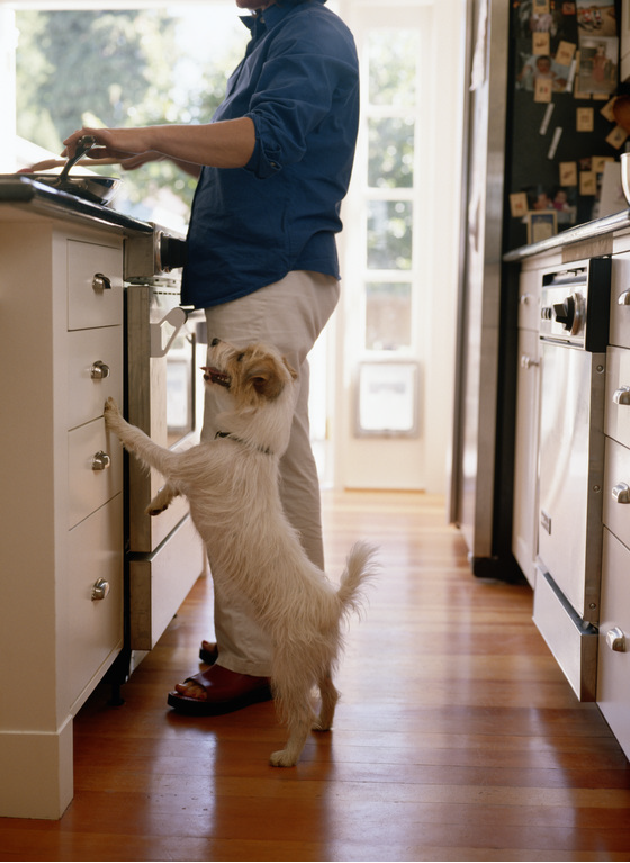 Today, more and more pet owners are choosing to feed their animals a “raw food” diet. This can be a great choice for your pet, especially if he is prone to food allergies, or if recommended by your veterinarian.
Today, more and more pet owners are choosing to feed their animals a “raw food” diet. This can be a great choice for your pet, especially if he is prone to food allergies, or if recommended by your veterinarian.
Safe Handling
Here we will discuss some precautions that you should take when feeding your pet an all raw diet, and what you can do to prevent bacterial infection and contamination.
1. Store raw meat in the freezer
Prepare the meat into daily feeding portions in baggies or storage containers to make it easier to thaw what is needed for each day. Thaw in the refrigerator overnight to limit bacterial growth.
2. Limit feeding time
Leave your pets raw food out for NO longer than 2 hours, and discard any leftovers. Raw food left out at room temperature is susceptible to bacterial growth.
3. Clean up after each feeding
Be sure to wash all containers, bowls, and surfaces that have come into contact with raw meat after each feeding. Wash with hot, soapy water. If left unwashed these surfaces can become home to harmful bacteria that can spread to people and to your pet at the next feeding.
Supplement With Probiotics
Supplement your pet’s diet with pet probiotics. These bacteria will infiltrate the system, and rid the body of any bad bacteria it may come in contact with.
Read the Article : 8 Signs Your Pet Needs Probiotics and Enzymes.
Are Digestive Enzymes Necessary?

Pets on an all raw diet can still benefit from supplementing with digestive enzymes. Assuming your pet’s diet consists of only 100% raw meat with no potatoes, rice or vegetables that are cooked, supplement as follows: Add ¼ scoop of Total-Zymes® per 1 cup of raw food.
Total-Zymes® will replace the enzymes lost in grinding, freezing, storing and handling the meat. The leftover enzymes that were not used to digest the food will be used systemically to combat inflammation and joint discomfort. Those enzymes will also work on eliminating the side effects of allergens such as pollen, mold, and dander within the body.
